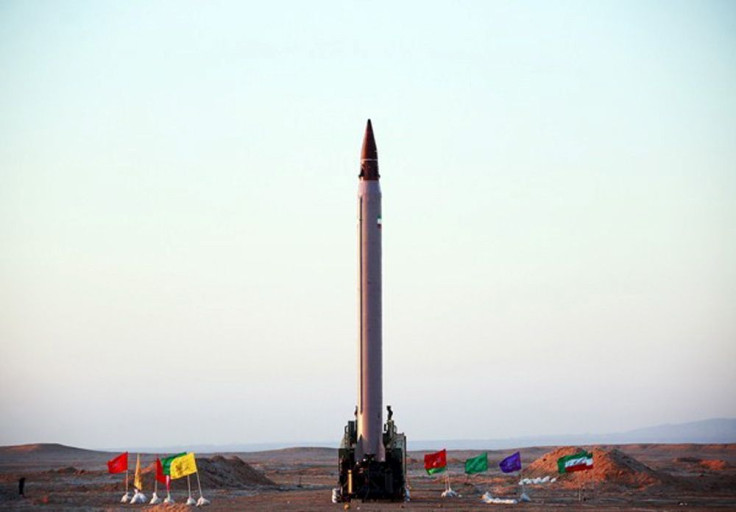Iran's Missile Test Violates UN Ban, Panel Says; Fresh Sanctions Against Tehran Likely

Iran violated a United Nations Security Council resolution by test-launching a medium-range ballistic missile in October, a U.N. panel said, according to reports Tuesday. The breach could possibly attract additional sanctions against the Islamic republic.
The panel report, dated Dec. 11, stated that the firing used ballistic missile technology banned under a June 2010 resolution, according to the Associated Press. Tehran launched the Emad rocket on Oct. 10 -- the first test-firing of a ballistic surface-to-surface missile after Iran reached a major nuclear deal with six world powers on July 14. Iran insists that its missiles are not capable of carrying nuclear weapons, the AP reported.
"On the basis of its analysis and findings the panel concludes that Emad launch is a violation by Iran of paragraph 9 of Security Council resolution 1929," the panel said in the report, according to Reuters.
The missile has a range of at least 620 miles and up to 807 miles, with a payload of at least 2,200 pounds and up to 3,086 pounds, the AP reported, citing the report. However, according to the panel, a missile with at least a 186-mile range and a payload of at least 1,102 pounds can be categorized under weapons of mass destruction. The report suggested that the rocket was designed to carry a nuclear warhead.
On Oct. 21, the United States, France, Britain and Germany urged the Security Council to investigate and take "appropriate action" against Iran for the Oct. 10 missile launch, AP reported. The panel’s report also calls for action against Tehran. It remained unclear whether the Security Council will take any action.
Following the panel’s report, Washington reportedly said that fresh sanctions could be imposed on Tehran.
The report comes days after the U.N. nuclear watchdog said that Iran stopped all nuclear activities in 2009. The report was one of the conditions in the July 14 nuclear deal between Iran and six world powers stating that the agreement would not come into effect until the International Atomic Energy Agency’s investigation was complete. The landmark deal called for lifting sanctions on Iran in exchange of a vow from Tehran to keep its nuclear program peaceful and curb sensitive nuclear activities for a decade or longer.
© Copyright IBTimes 2024. All rights reserved.












